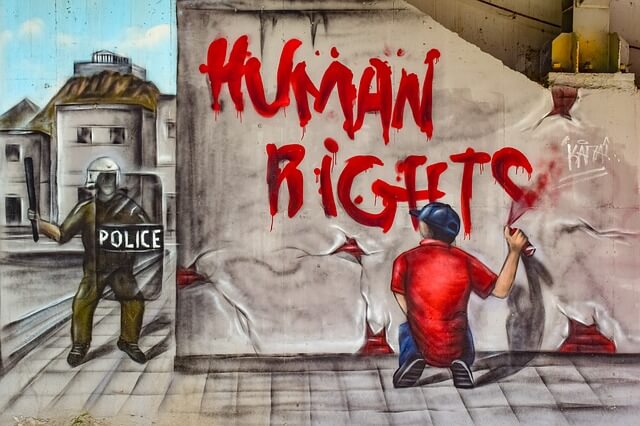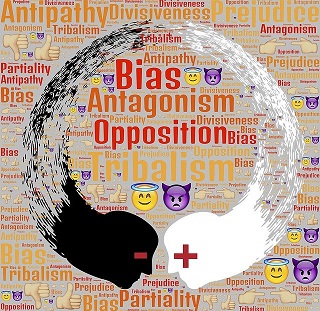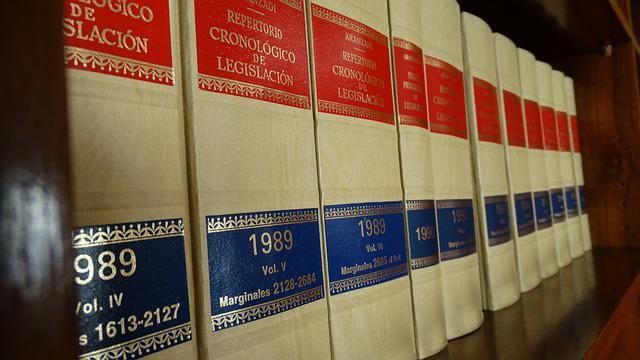discrimination
المقررات الدراسية موسومة بـ "discrimination"
Inequality
Learn about inequalities in society including poverty, health and age. This course is ideal for intermediate learners.
Introduction
Inequality can be found in most societies as it is the result of resources being shared out unequally among people. Resources are usually given out according to social characteristics such as age, gender and disability.These characteristics can come from:
· Ascribed characteristics which are assigned at birth, or an automatic development at some point and includes factors such as age, gender or place of birth
· Achieved characteristics which are earned or chosen and involves factors such as level of education and marital status.
Resources that are distributed can include the following:
· Income or wealth, where there is economic inequality
· Social power, meaning the right to be an authority figure or to have a say
· Natural goods, such as parks or green areas
· Public goods, which can include: education, housing, transport, credit (such as cards, store cards, loans or mortgages) and banking
You will learn
- What is inequality in society
- Inequality in economic status
- How economic inequality is measured
- The meaning of poverty
- inequality in health
- Inequality in age
Human Rights and Public Services
Learn about the Human Rights Act 1998 and other legislation to protect your rights as a citizen. This course is ideal for intermediate learners.
Introduction
As normal citizens in the UK we are expected to follow the laws of the country and be good citizens. Members of the public services also have to obey the laws that everyone else does, but they have additional laws to follow because they have additional powers that normal citizens do not have.Every statutory public service in the UK has its own legislation, to describe not only how the service should function but also its limitations and restrictions. Members of the public services should be role models and examples to others. They need to have authority and that can only be achieved if they are good citizens and obey the law themselves.
Human rights are things to which individuals in society are entitled. These rights are laid down in law, so if these rights are violated, then a UK citizen can go to court to seek justice. The principal law in the UK is the Human Rights Act 1998.
Human rights can be split into two sections:
1. Protection
2. Rights or entitlements
You will learn
- Human Rights Act 1998
- Other legislation (law) that protect your rights as a UK citizen
Discrimination
Learn about discrimination, protected characteristics and exceptions. This course is ideal for intermediate learners.
Introduction
Discrimination is treating a person, or particular group of people, differently from the way in which you treat other people, because of a particular characteristic such as skin colour, gender and race. It is against the law in the UK to discriminate against anyone based on nine ‘protected characteristics’.You are legally protected from discrimination by the Equality Act 2010.
You are also protected from discrimination if:
• You are associated with someone who has a protected characteristic, e.g. a family member or friend
• You have complained about discrimination or supported someone who has
You will learn
- What is discrimination?
- Protected characteristics
- Types of discrimination
- Exceptions
Safety Responsibilities of Employers
Learn more about the different types of responsibilities employers have to maintain the safety of their employees and the public. This course is ideal for intermediate learners.
Introdcution
Employers have responsibilities to the people who work for them. If they do not take these responsibilities seriously, then it can have a bad effect on the services or on an individual.What’s the difference between an employee and an employer?
· An employee is a person employed for wages or salary
· An employer is the person or company who employs others and pays them
Here are a few examples of the responsibilities that employers have:· To provide safe working environments for all employees
· To provide adequate training
· To provide any necessary safety equipment or work wear
· To enable whistleblowing
You will learn
- The different types of responsibilities that employers in the public service have
- Why it is important that the employers in the public have responsibilities and how they maintain these
- Safe working environment
- Whistleblowing
Rights within the Criminal Justice System
Learn more about rights within the criminal justice system. This course is ideal for intermediate learners.
Introduction
As we look at how Public Services support the rights and responsibilities of citizens, it is important to understand a citizen’s rights in relation to the Public Services.We will now look at the rights of citizens within the criminal justice system.
Every citizen has basic rights, for example if you are arrested you are entitled to legal representation.
Here is some of the information relating to your rights when you’re arrested:· Getting free legal advice
· Telling someone where you are
· Having medical help if you’re feeling ill
· Being given a notice that tells you about your rights
· Access to an interpreter, if needed
· For your possessions to be kept locked away safely
You will learn
- Legal representation
- Legal aid
- A fair trial
Public Services and Legislation
Learn about the legislation surrounding the public sector and equality duty. This course is ideal for intermediate learners.
Introduction
All public services have to comply with the Equality Act 2010 and this states that they must also comply with the public sector equality duty. The equality duty ensures that public services think about how they deliver their services and how this will impact on those who are disadvantaged or within the protected characteristics group.
As with discrimination exceptions, there are situations where public services do not need to comply with these duties. These include the following areas:
Judicial Events – The courts do not need to think about the equality duty when making decisions or when and how they conduct the proceedings.
Age in education or children’s home – Schools do not need to think about how to develop good relationships between pupils of different ages. However they need to consider this between pupils of different religions.
Immigration - When involved in immigration proceedings, public services would not need to think about the advance equality of opportunity (treating one group more favourably than another because of their disadvantage) to those in the following protected groups:
- · Age
- · Religion
- · Race
You will learn
- Public sector equality duty exceptions
- Types of legislation under the equality duty
- Policy and decision making processes
Public Services and Equality
Learn about equality and how it affects people and public services. This course is ideal for intermediate learners.
Introduction
Equality is based on the understanding that everyone should be treated equally, so that they have the same opportunities as each other regardless of, for example, their age, sex, sexuality, disability or race.People treated unequally due to these differences are being discriminated against, which is illegal.
We are protected from discrimination through the implementation of the Equality Act 2010.
Equality Act 2010.
below some of the nine pieces of legislation were merged to create the Equality Act 2010.
EQUAL PAY ACT 1970: Stops any favourable or unfavourable treatment of pay, or any other conditions, within employment between men and women.
RACE RELATIONS ACT 1976: The protection against discrimination relating to a male or female’s race, colour, ethnic or national background in education and employment and during the process of buying goods or services.
EMPLOYMENT EQUALITY (RELIGION or BELIEF) REGULATIONS 2003: Used to protect people
from being discriminated against due to their religion or belief, or non-religion/belief
within employment.
EMPLOYMENT EQUALITY (SEXUAL ORIENTATION) REGULATIONS 2003: The protection against discrimination due to expected or known sexual orientation within employment, which also includes discrimination against religion, belief and age.
EMPLOYMENT EQUALITY (AGE) REGULATIONS 2006: The protection against discrimination on the grounds of age within employment. Employees may work after the national retirement age.
You will learn
- Equality
- What is equality
- How equality affects us and the public services
Public Services Affected by Finances and Social Inequality
Learn more about how public services are affected by finances and social inequity. This course is ideal for intermediate learners.
Introduction
The Public Services rely on funding from the Government to survive. The Government has to choose how much money it allocates to each service, based on the money they have. When the Government needs to save money, they can often make cuts to different Public Services.What effect can it have?
· Slower response times
· They may cut jobs
· Reduced hours
· Station closures
· Reduced training
· Removal of specialist equipment that is expensive to run
You will learn
- Government finance
- Fire service
- Police
- Social inequality
Promoting Good Citizenship
Learn more about the promotion of good citizenship in the public services sector. This course is ideal for intermediate learners.
Introduction
The Public Services view good citizenship as an important part of maintaining a good society.Therefore, Public Services want to maintain good citizenship by:
· Having a desire to improve society
· Protecting individuals
· Protecting the vulnerable
· Contributing to society by getting involved
You will learn
- How public services promote good citizenship
- How when working in public services you will promote good citizenship










